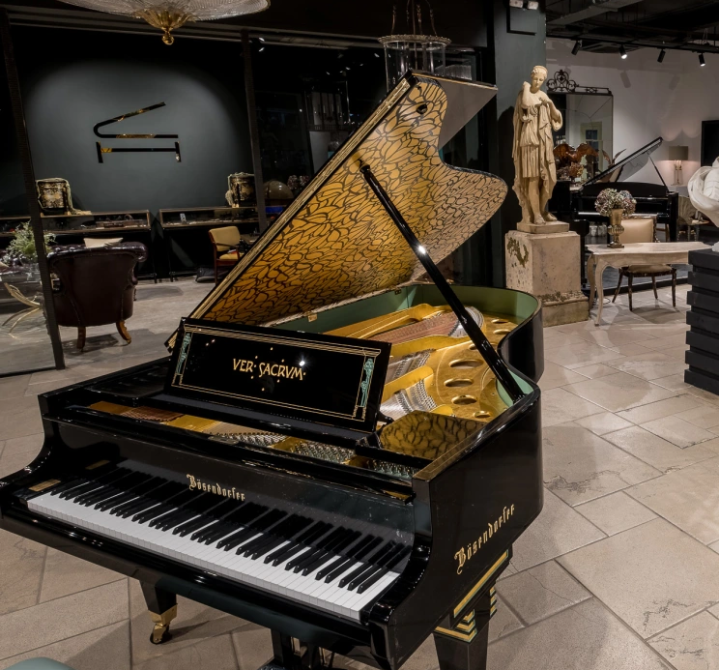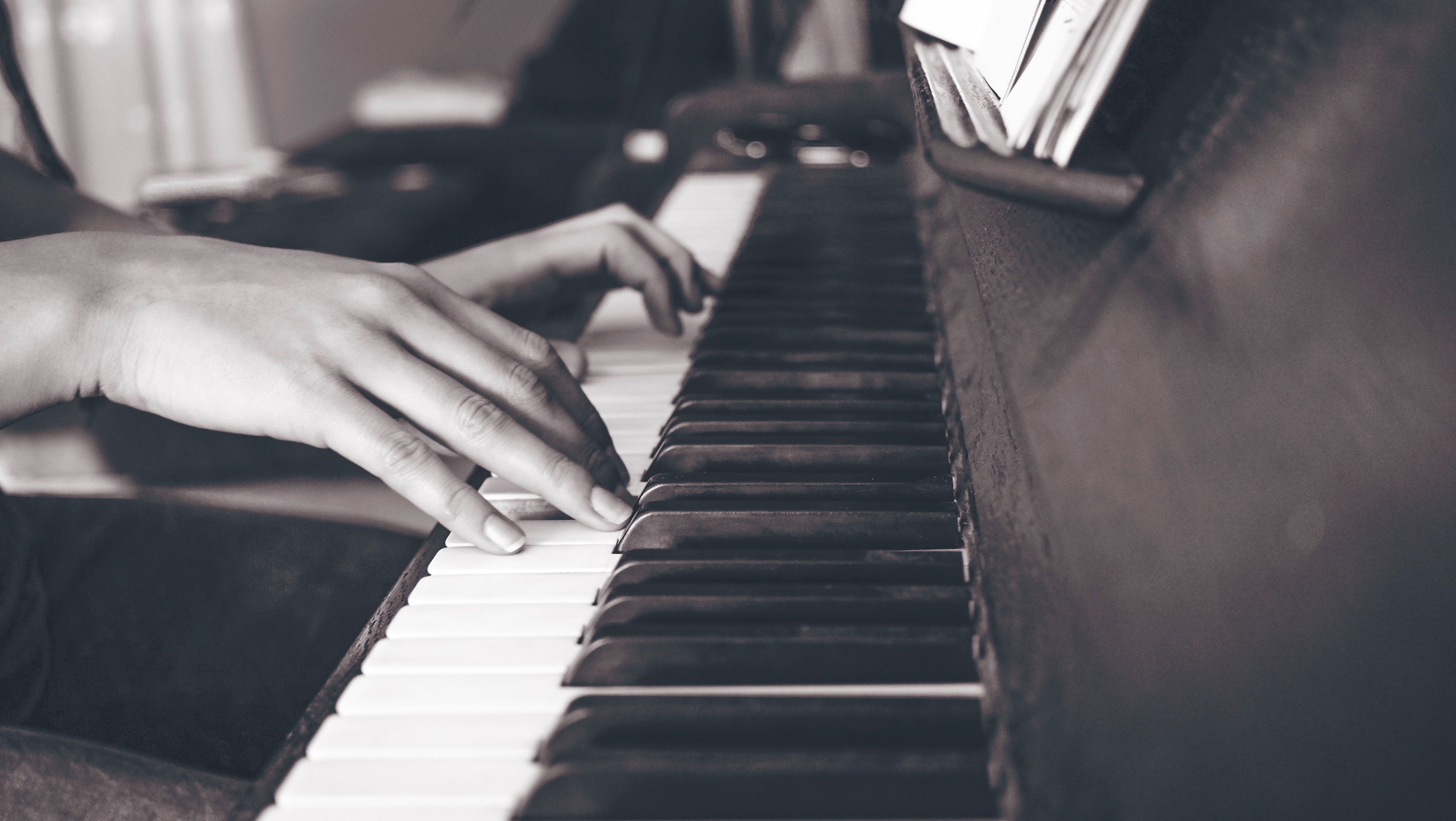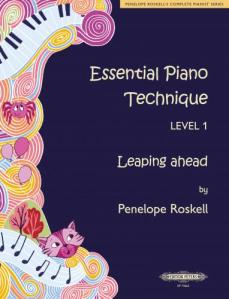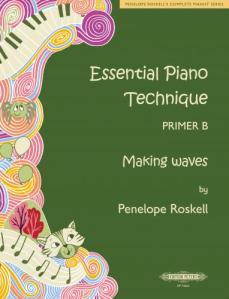Guest post by Ingrid on the experience of studying with Dr Michael Low
Like many musicians, my journey started thanks to a fabulous piece I heard one day (and for sure so many more, but it has been a while so I can’t quite tell) that moved my heart and soul so deeply that I started daydreaming about it and about being able to do that same thing with the piano. I was maybe 10 or 13, but it took a while until I finally got to convince my parents to allow me to start learning the piano.
This led me to begin music lessons at the National Conservatoire here in Guatemala, and, as all music schools based on tradition, the curriculum included not only piano per se, but also Solfege, History, Tonal Harmony, and other subjects that are intended to nurture (and they actually do) your musical understanding and therefore your musical interpretation. A couple of years later I decided to pursue a music degree at university, and I obtained a Teacher’s Diploma in Music and a bachelor’s degree in music composition.
All of this gave me the tools to finally “play the piano”, which we normally say when we hear someone “play” that instrument. But little did I know that there is a huge dimension behind the mere study of any artistic discipline, that is sometimes overlooked and underestimated – that is, the Human Dimension, with all its intricacies and complexities.
And why is it overlooked? Well, maybe because we usually assume that as artists (musicians, painters, writers…) that dimension is an obvious part of us, and even if that is true, no one ever prepares us for the setbacks and negative experiences that are inevitably part of the journey. As musicians we may suffer from stage fright, we may face abusive/authoritarian teachers, we may be immersed in a toxic competitive environment, we may be the target of intended mean critics, and none of that has to do with the subjects that we learn in during our studies, and that prepare us to become professional musicians – but it has a lot to do with who we are as human beings and how we practice our art.
These setbacks may lead us to reconsider our career path and that maybe we need a change. Some of us may decide to make a radical change, some of us may decide to make a small change. But all of this raises the question of how we can thrive when facing such difficult challenges.
I started searching for answers and began to read blogs where other musicians shared their own experiences in similar situations; blogs where teachers shared their thoughts on how to build a healthy technique and learning environment; blogs where authors shared their thoughts on creativity and how to foster it in your own practice; blogs that shared research based tips to better manage performance anxiety; and I found great resources in authors like Noa Kageyama, Forrest Kinney, William Westney, Graham Fitch, Penelope Roskell, Frances Wilson (The Cross-Eyed Pianist), Rhonda Rizzo, Zsolt Bognár and Michael Low.
In one of those blogs, I was particularly struck by an article that Dr. Michael Low shared where he talked about his own journey with the piano, performance anxiety and the tradition in music education. It really resonated with me, so I started following his work closely.
At some point we also started sharing our musical impressions through social media and video chat. I shared with him that I was re-studying the Brahms’ Intermezzo in A, op. 118 no. 2, and sent him a recording I made of the piece. I remember he gave me some observations about it and his enthusiasm to work on it musically. I am not exaggerating when I say that this experience has been life changing.
I have to say I’d never had the chance to really discover and experiment with that (or any other) piece, nor I have had the chance to “think outside the box” musically speaking, because you are normally taught that there are “rules” that you must respect as interpreter, and sometimes even “fear”. There is nothing wrong with rules, but as an artist you can always trust your own criteria to use them; however, only an open-minded teacher and artist can help you discover that, and one of them is Dr. Michael Low.
It amazes me how spontaneously Dr. Low fosters that safe environment for experimentation, and how through funny examples and direct questions he challenges your own beliefs: be it about the piece or the composer or your own playing, always in a very kind and respectful manner, going beyond the surface and helping you to start thinking more as an artist than just a “piano player”. And the best part is that there are plenty of Eureka! moments, when you discover all the possibilities you have in your own hands, under his guidance.
And even if I have been in piano lessons before, there has always been a rush and a pressure to play a particular piece “perfectly”, not giving any space to really discover it (besides the obvious aspects of technique and analysis that are intrinsic to the music study), and to find one’s own voice as a musician and, most importantly, as artist. When there is too much noise outside, we get distracted from what we must look for on the inside.
After working all this time with Dr. Low and sharing interesting discussions about music, while also applying and following all of his very insightful advice in my own practice (both as teacher and as pianist), I have come to various conclusions that make me think about how we can thrive.
- There is not just one answer, nor a right or wrong one, but there are some general thoughts that are worth always keeping in mind:
- Music is a lifelong learning career/experience where one of our biggest enemies is the obsession with perfection
- Kindness, in every aspect: with ourselves and with others, is a life changer as it creates wonders
- Patience with our own artistic growth, as no path is the same as other and there is no one-size-fits-all solution for such big endeavor
As Vincent van Gogh wrote to his brother Théo, in a letter from May 1882, with relation to the meaning of being an artist:
“(…) Those words naturally imply always seeking without ever fully finding. It’s the exact opposite of saying ‘I know it already; I’ve already found it’. To the best of my knowledge, those words mean ‘I seek, I pursue, my heart is in it’.”
This article is translated from the original Spanish, which you can read here:
Dr Michael Low is a pianist and teacher based in South Africa. If this article has piqued your interest in his work, why not come along to a masterclass at Coach House Pianos London showroom on Saturday 1 June to observe Dr Low teaching advanced amateur pianists in a variety of repertoire. The event is hosted by Frances Wilson AKA The Cross-Eyed Pianist.



 The new release of Piano Pieces Plus Exercises from TCL encompasses a wider range of styles and genres at every grade than ever before, offering an engaging, imaginative and highly varied selection to satisfy the tastes of any pianist, be they children, teenagers or adult learners. The grade volumes are immediately appealing: the attractive cover has a striking illustration of a grand piano, while inside there is heavyweight cream paper and clear, unfussy engraving. Each volume, colour-coded according to grade (as per previous syllabuses) and available in print and e-book format, includes comprehensive Performance Notes which offer important context to each piece and aspects to consider in learning, interpretating and performing the music. The major addition for 2023 is the ‘Extended Edition’ for each grade, offering a handsome volume of 21 appealing pieces from Baroque to present-day, plus exercises and scales and arpeggios. These are available in addition to the standard exam repertoire books of 12 pieces. The Extended edition also includes access to broadcast quality downloadable demo tracks (via a download code) so that teachers and students may listen to each piece and the exercises, performed by a cohort of well-respected pianists, including Yulina Chaplina, Greg Drott and John Paul Ekins.
The new release of Piano Pieces Plus Exercises from TCL encompasses a wider range of styles and genres at every grade than ever before, offering an engaging, imaginative and highly varied selection to satisfy the tastes of any pianist, be they children, teenagers or adult learners. The grade volumes are immediately appealing: the attractive cover has a striking illustration of a grand piano, while inside there is heavyweight cream paper and clear, unfussy engraving. Each volume, colour-coded according to grade (as per previous syllabuses) and available in print and e-book format, includes comprehensive Performance Notes which offer important context to each piece and aspects to consider in learning, interpretating and performing the music. The major addition for 2023 is the ‘Extended Edition’ for each grade, offering a handsome volume of 21 appealing pieces from Baroque to present-day, plus exercises and scales and arpeggios. These are available in addition to the standard exam repertoire books of 12 pieces. The Extended edition also includes access to broadcast quality downloadable demo tracks (via a download code) so that teachers and students may listen to each piece and the exercises, performed by a cohort of well-respected pianists, including Yulina Chaplina, Greg Drott and John Paul Ekins.









